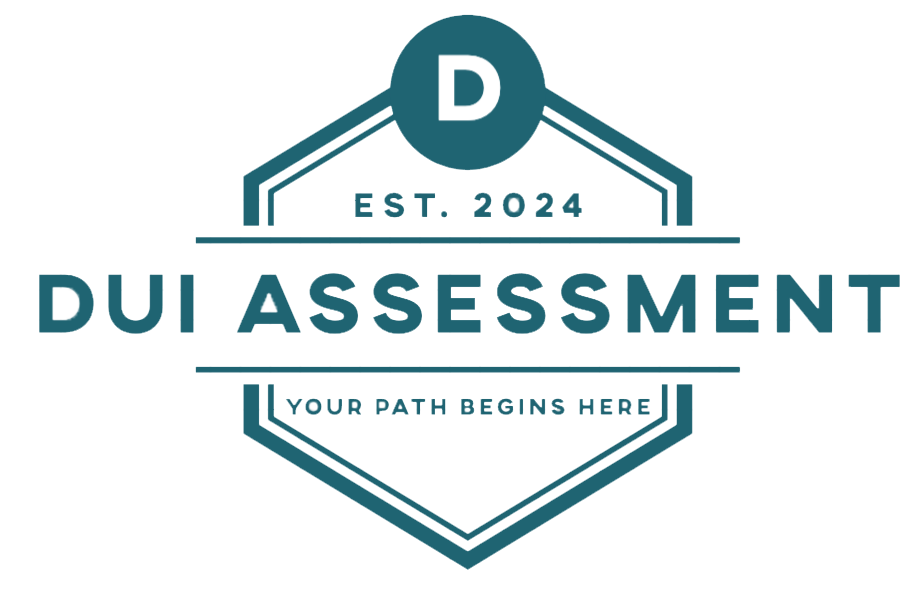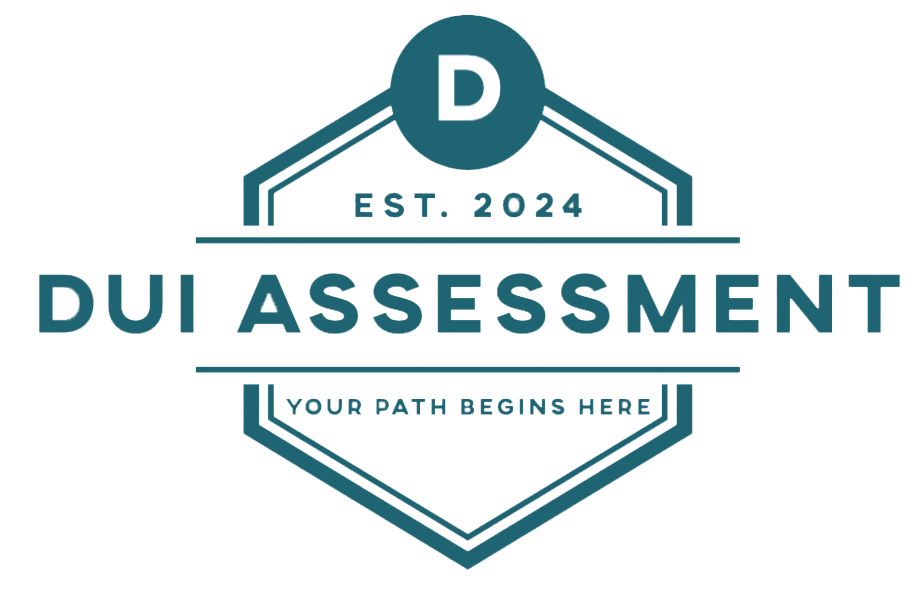Facing a court-ordered DUI assessment can feel overwhelming, especially when you’re unsure about what the process involves. Many people approach these evaluations with anxiety and uncertainty, wondering what questions they’ll face, how long the process takes, and what the assessor will be looking for during the interview. Understanding what happens during a DUI assessment can help reduce anxiety and ensure you’re properly prepared for this important step in your legal journey.
DUI assessments have become a standard component of the legal process following impaired driving arrests, reflecting the justice system’s evolution toward addressing underlying factors that contribute to these incidents. Rather than focusing solely on punishment, modern approaches emphasize identifying and treating substance abuse issues, mental health concerns, and other factors that may have influenced the decision to drive while impaired.
The assessment process serves multiple purposes within the legal framework. It provides courts with objective, professional insight into your relationship with alcohol, helps determine appropriate sentencing and treatment recommendations, establishes a baseline for monitoring progress and compliance, and offers an opportunity for individuals to demonstrate responsibility and commitment to positive change.
Pre-Assessment Preparation and Initial Contact
Before diving into what happens during a DUI assessment, it’s important to understand the preparation phase that sets the stage for a successful evaluation. This preliminary stage often determines how smoothly the actual assessment process will proceed and can significantly impact the quality of information gathered during the evaluation.
Most assessment processes begin with an initial phone call or online contact with the assessment provider. During this preliminary communication, the provider’s office will typically gather basic information about your case, including court requirements, deadlines for completion, and any specific instructions from the judge or your attorney. They’ll also provide information about scheduling, fees, required documentation, and what to expect during the evaluation.
When you first contact an assessment provider, they’ll likely ask about the circumstances of your DUI case, including the date of your arrest, your court date, any specific assessment requirements mentioned in your court paperwork, and whether you have any previous DUI convictions or substance abuse treatment history. This preliminary information helps them determine the appropriate type of assessment and estimate the time required for your evaluation.
The scheduling process typically involves finding a mutually convenient time for your assessment appointment, which may last anywhere from one to four hours depending on the complexity of your situation. Many providers offer flexible scheduling options, including evening and weekend appointments, to accommodate work schedules and other obligations.
During the initial contact, you’ll receive detailed instructions about what to bring to your assessment appointment. This typically includes valid photo identification, court paperwork related to your DUI case, any previous substance abuse treatment records, mental health treatment documentation, medical records relevant to your alcohol use, current medication lists, and payment for the assessment fee.
Arrival and Initial Intake Procedures
Understanding what happens during a DUI assessment begins with the arrival and check-in process. Most assessment appointments start with an initial intake phase designed to gather basic demographic information, verify your identity and court requirements, and help you feel comfortable with the evaluation process.
Upon arrival at the assessment location, you’ll typically complete various forms and questionnaires before meeting with the assessor. These preliminary documents often include basic demographic information such as name, address, employment status, and emergency contacts. You may also complete initial screening questionnaires about your alcohol use patterns, mental health symptoms, and the circumstances surrounding your DUI incident.
The intake process also involves reviewing and signing informed consent documents that explain the assessment process, confidentiality limitations, and how the results will be used. These documents typically outline that while your conversations with the assessor are generally confidential, the assessment report will be shared with the court, your attorney, and potentially your probation officer.
During this initial phase, the assessment provider will verify that they have all necessary court documentation and understand any specific requirements for your evaluation. They’ll also confirm your contact information and ensure they have the correct addresses for sending the completed assessment report to all required parties.
Many providers use this time to explain the assessment process and answer any initial questions you might have about what to expect during the evaluation. This orientation helps reduce anxiety and ensures you understand your role in providing honest, complete information throughout the assessment.
The Clinical Interview: Core Assessment Phase
The heart of understanding what happens during a DUI assessment lies in the clinical interview phase, which typically represents the longest and most comprehensive portion of the evaluation process. This structured conversation between you and the licensed assessor forms the foundation for all subsequent recommendations and conclusions in your assessment report.
The clinical interview usually begins with open-ended questions designed to help you feel comfortable and establish rapport with the assessor. These initial questions often focus on basic demographic information, your current living situation, employment status, and general life circumstances. The assessor uses this time to observe your presentation, communication style, and general demeanor while gathering important background information.
As the interview progresses, questions become more specific and detailed, focusing on your alcohol consumption patterns and history. The assessor will ask about when you first began drinking alcohol, how your consumption patterns have changed over time, typical drinking frequency and quantities, and any periods of reduced consumption or abstinence. These questions help establish a comprehensive picture of your relationship with alcohol beyond the specific incident that led to your DUI charge.
Family history represents another crucial component of the clinical interview. Assessors will ask detailed questions about substance abuse, mental health issues, and other relevant conditions among family members, particularly parents and siblings. This information helps identify potential genetic predispositions and environmental factors that may influence your risk for developing alcohol-related problems.
Mental health evaluation forms an integral part of what happens during a DUI assessment, as many people with alcohol use disorders also experience co-occurring mental health conditions. The assessor will explore any history of depression, anxiety, trauma, mood disorders, or other psychological conditions that may contribute to problematic alcohol use or influence treatment recommendations.
The circumstances surrounding your specific DUI incident receive thorough examination during the clinical interview. You’ll be asked to provide detailed information about what you were drinking, over what time period, where you were drinking, your perceived level of intoxication at the time, the decision-making process that led to driving, and your emotional state during the incident. This information helps the assessor understand whether your DUI represents typical drinking behavior or an unusual circumstance.
Employment and educational history also receive attention during the interview, as work-related stress, job instability, or academic pressures can sometimes contribute to increased alcohol consumption. The assessor will explore how your alcohol use may have impacted your work performance, attendance, or relationships with colleagues and supervisors.
Social support systems and relationships represent another important area of exploration. The assessor will ask about your family relationships, friendships, romantic partnerships, and community connections. Strong social support can serve as a protective factor against alcohol abuse, while social isolation or relationship problems may increase risk for problematic drinking.
Standardized Assessment Tools and Questionnaires
In addition to the clinical interview, understanding what happens during a DUI assessment includes completing various standardized assessment instruments designed to provide objective measures of alcohol use patterns, risk factors, and treatment needs. These tools complement the clinical interview and help ensure comprehensive evaluation using scientifically validated methods.
The Alcohol Use Disorders Identification Test (AUDIT) represents one of the most commonly used screening instruments in DUI assessments. This ten-question tool evaluates alcohol consumption patterns, drinking behaviors, and alcohol-related problems over the past year. The AUDIT provides standardized scores that help assessors determine the severity of alcohol-related issues and appropriate levels of intervention.
The Substance Abuse Subtle Screening Inventory (SASSI) is another frequently used assessment tool that evaluates both obvious and subtle indicators of substance abuse problems. This instrument includes questions about alcohol and drug use as well as psychological and behavioral patterns that may indicate substance abuse issues even when individuals are not entirely forthcoming about their consumption patterns.
Some assessors use the Michigan Alcoholism Screening Test (MAST) or its shorter version (SMAST) to identify potential alcohol abuse and dependence. These instruments focus specifically on alcohol-related problems and consequences, providing additional objective measures to complement clinical judgment.
Depending on your specific situation, the assessor may also administer mental health screening tools such as depression inventories, anxiety scales, or trauma assessments. These additional instruments help identify co-occurring conditions that may require integrated treatment approaches.
The completion of standardized assessment tools typically occurs either before or after the clinical interview, depending on the assessor’s preferred approach. Some providers have clients complete these instruments while waiting for their appointment, while others integrate them into the interview process or administer them following the clinical conversation.
Exploring Risk Factors and Protective Factors
A crucial component of what happens during a DUI assessment involves the systematic evaluation of factors that may increase or decrease your risk for future alcohol-related problems or repeat DUI incidents. This risk assessment helps inform treatment recommendations and provides courts with information about appropriate monitoring and intervention strategies.
Risk factors that assessors typically explore include family history of substance abuse, early age of first alcohol use, previous alcohol-related legal problems, co-occurring mental health conditions, social isolation or problematic relationships, employment or financial stress, and previous unsuccessful attempts at reducing alcohol consumption.
The assessor will also examine protective factors that may support your recovery and reduce risk for future problems. These might include strong family support, stable employment, previous successful treatment experiences, religious or spiritual involvement, healthy recreational activities and interests, and genuine motivation to address alcohol-related issues.
Pattern recognition represents an important aspect of risk assessment during DUI evaluations. The assessor will look for patterns in your drinking behavior, such as binge drinking episodes, drinking in response to stress or negative emotions, drinking alone or in secretive ways, and drinking despite negative consequences. Identifying these patterns helps determine appropriate intervention strategies and treatment intensity.
Environmental factors also receive attention during risk assessment, including living situations that may support or hinder recovery efforts, social circles that may encourage or discourage alcohol use, work environments that may involve alcohol availability or pressure to drink, and community resources that may support positive change.

Assessment of Treatment Readiness and Motivation
Understanding what happens during a DUI assessment includes evaluation of your readiness and motivation for making positive changes related to your alcohol use. This assessment of treatment readiness significantly influences the types of recommendations included in your final assessment report.
Assessors evaluate treatment readiness using various indicators, including your willingness to acknowledge alcohol-related problems, openness to receiving help and support, recognition of connections between alcohol use and negative consequences, expression of genuine desire to make positive changes, and demonstrated commitment to following through with recommendations.
The stages of change model often guides this evaluation, with assessors determining whether you’re in a precontemplation stage (not yet recognizing problems), contemplation stage (beginning to consider change), preparation stage (actively planning changes), action stage (implementing changes), or maintenance stage (sustaining positive changes over time).
Motivation for change can stem from various sources, including legal consequences, family pressure, health concerns, employment issues, or personal recognition of problems. The assessor will explore what factors motivate you to consider making changes and how these motivational factors can be leveraged to support successful intervention.
Barriers to change also receive attention during this phase of the assessment. These might include denial about the severity of alcohol-related problems, fear of social consequences from reducing drinking, concern about losing social connections centered around alcohol use, anxiety about coping with stress without alcohol, or practical barriers such as transportation or financial limitations.
Collateral Information and Additional Sources
What happens during a DUI assessment may also include gathering information from additional sources beyond your self-report. While the clinical interview represents the primary source of assessment information, assessors sometimes seek collateral information to verify or supplement the details you provide.
In some cases, assessors may request permission to speak with family members, friends, or other significant people in your life who can provide additional perspective on your alcohol use patterns and related behaviors. These collateral contacts can offer valuable insights, particularly when individuals may be minimizing their alcohol consumption or its impact on their functioning.
Previous treatment records, when available and with appropriate consent, provide important historical information about past intervention attempts, treatment engagement, and outcomes. This information helps assessors understand what approaches have been tried previously and may inform recommendations for current treatment needs.
Medical records may also be relevant, particularly if you have alcohol-related health problems, take medications that interact with alcohol, or have medical conditions that may be exacerbated by alcohol use. The assessor may request permission to obtain relevant medical information or ask you to provide recent laboratory results or physician reports.
Law enforcement reports and court documents provide objective information about the circumstances of your DUI incident and any previous alcohol-related legal problems. While you may be asked to bring copies of these documents to your assessment, assessors typically have access to this information through court referrals.
Wrapping Up the Assessment Session
As the formal assessment interview concludes, understanding what happens during a DUI assessment includes several final steps designed to ensure completeness and accuracy of the evaluation. The assessor will typically review the information gathered during the session, ask any clarifying questions that may have arisen during the interview, and provide you with information about next steps in the process.
Many assessors use this time to explain how the assessment report will be prepared, who will receive copies, and approximately when you can expect the report to be completed. They may also provide preliminary information about likely recommendations, though final recommendations aren’t determined until the assessor has time to review all information and consider appropriate intervention options.
You’ll have an opportunity to ask questions about the assessment process, express any concerns about the evaluation, and provide any additional information you feel may be relevant to your situation. This is also an appropriate time to clarify any aspects of the interview that you feel may have been misunderstood or incompletely addressed.
The assessor will confirm your contact information and verify that they have correct addresses for sending the completed report to all required parties, including the court, your attorney, and potentially your probation officer. They’ll also provide you with information about how to obtain a copy of your assessment report if you need one for your records.
Post-Assessment Report Preparation
Following the completion of your assessment session, understanding what happens during a DUI assessment extends to the report preparation phase, during which the assessor analyzes all gathered information and formulates findings and recommendations.
The report preparation process typically takes several days to two weeks, depending on the assessor’s caseload and the complexity of your evaluation. During this time, the assessor reviews all interview notes, standardized test results, and any collateral information gathered during the assessment process.
The diagnostic phase of report preparation involves determining whether you meet criteria for an alcohol use disorder based on standardized diagnostic criteria from the Diagnostic and Statistical Manual of Mental Disorders. This determination considers factors such as tolerance, withdrawal symptoms, consumption patterns, failed attempts to cut down, time spent obtaining or using alcohol, neglect of responsibilities, and continued use despite negative consequences.
Risk assessment represents another crucial component of report preparation, during which the assessor evaluates your likelihood of future alcohol-related problems or repeat DUI incidents. This assessment considers various factors identified during the evaluation, including severity of alcohol use problems, previous treatment history, social support systems, co-occurring mental health conditions, and demonstrated motivation for change.
Treatment recommendations flow from the diagnostic and risk assessment findings, with assessors identifying specific interventions designed to address issues identified during the evaluation. These recommendations might range from alcohol education classes for individuals with minimal substance abuse concerns to intensive residential treatment for those with severe alcohol use disorders.
Understanding Your Assessment Results
The final component of what happens during a DUI assessment involves receiving and understanding your assessment results and recommendations. The completed assessment report represents a comprehensive document that summarizes the evaluation findings and provides specific guidance for addressing any identified issues.
Assessment reports typically include several key sections: demographic and background information, summary of alcohol use history, mental health evaluation findings, diagnostic conclusions, risk assessment results, and specific treatment recommendations. The report may also include information about your motivation for change, identified strengths and resources, and any special considerations that may influence treatment planning.
The diagnostic section will clearly indicate whether you meet criteria for an alcohol use disorder and, if so, the severity level (mild, moderate, or severe). This determination significantly influences the types of interventions recommended and may impact legal proceedings in your case.
Treatment recommendations represent perhaps the most important component of the assessment report, as they outline specific steps designed to address identified issues and reduce risk for future problems. These recommendations might include alcohol education programs, outpatient counseling, intensive outpatient treatment, residential treatment programs, regular monitoring or testing, participation in mutual support groups, or ongoing case management services.
The assessment report serves as a roadmap for your continued involvement with the legal system and any required treatment interventions. Following through with assessment recommendations is typically required for legal compliance and can significantly impact the outcome of your case and your long-term well-being.
Moving Forward After Your Assessment
Understanding what happens during a DUI assessment culminates in taking appropriate next steps based on the evaluation findings and recommendations. The assessment represents just the beginning of a process that often extends well beyond the initial evaluation, requiring ongoing commitment to positive change and compliance with court requirements.
Review your assessment report carefully and discuss any questions or concerns with the assessor, your attorney, or other appropriate professionals. Make sure you understand all recommendations and any timelines for completing required interventions. If you disagree with any findings or recommendations, discuss your concerns with your attorney about appropriate options for addressing these issues.
Begin researching providers for any recommended treatment interventions as soon as possible after receiving your assessment results. Some programs may have waiting lists or specific enrollment requirements that could delay your participation if you wait too long to begin the process.
Document your participation in all recommended programs carefully, as you’ll likely need to provide proof of compliance to the court, your probation officer, or other legal authorities. Keep copies of all certificates, attendance records, and progress reports from any treatment programs you complete.
Consider the assessment and any subsequent treatment recommendations as opportunities for positive change rather than simply legal obligations. Many people discover that addressing alcohol-related issues leads to improvements in various areas of life, including relationships, work performance, physical health, and overall well-being.
Stay in regular communication with your attorney about your progress with recommended interventions, as completion of these requirements often influences plea negotiations, sentencing decisions, and probation terms. Your commitment to following through with assessment recommendations can demonstrate responsibility and genuine desire for positive change.
Let Us Help You Today
Understanding what happens during a DUI assessment can help reduce anxiety and ensure you approach this important process with appropriate preparation and realistic expectations. While the evaluation may feel overwhelming initially, remember that the assessment serves important purposes in both the legal process and your personal journey toward addressing any alcohol-related issues.
The assessment process provides an opportunity to work with qualified professionals who can help identify factors that contributed to your DUI incident and recommend appropriate interventions to prevent future problems. Approaching the evaluation with honesty, openness, and commitment to positive change can lead to outcomes that benefit both your legal situation and your overall well-being.
Remember that thousands of people successfully complete DUI assessments each year, often discovering that the process leads to valuable insights and positive life changes. Take advantage of this opportunity to work with professionals who can help you move forward in a positive direction while meeting your legal obligations and building a foundation for continued success. At DUI Assessment, we provide exactly that. Visit our website today at www.dui-assessment.com to learn more.


